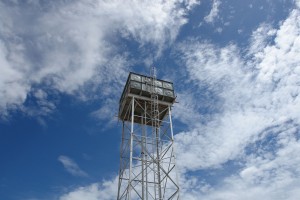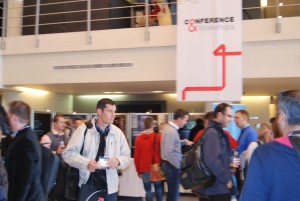CHAPTER < TEN - RENEGOTIATING HUMAN DESTINY CONTD.
Environmental Era Business
 From the individual who is undoubtedly the starting point of any major groundswell movement, the changing cultural values of the Environmental Era have filtered down to the worlds of business and industry, where there is now a broad move in the workplace away from the strict formal hierarchies of the past toward lateral management with its less autocratic decision-making style.
From the individual who is undoubtedly the starting point of any major groundswell movement, the changing cultural values of the Environmental Era have filtered down to the worlds of business and industry, where there is now a broad move in the workplace away from the strict formal hierarchies of the past toward lateral management with its less autocratic decision-making style.
A more intense commitment to accommodating the personal lives of employees and achieving a greater work/home balance has led to policies that are more humane: policies such as flexible working hours or “mommy-tracking” whereby a woman’s family commitments are taken into account in career planning, as well as extended maternity leave for mothers, and in some countries, even maternity leave for fathers. In some enlightened companies on-site medical services, job sharing, homeworking or teleworking, study leave, sabbaticals, day care facilities for young children and even care for the elderly have made the difference in retaining talented staff members, as has a focus on personal development and continued learning.
With the loosening up in business that has taken place over the past few decades more relaxed people are now working to live and are no longer living to work. However, conversely, despite the complexity and speeding up of business practices that has also taken place with globalisation, there does not seem to have been the marked decline in productivity that could be expected. With innovative human resource policies such as corporate stress management and retirement counselling programmes in place, the psychological and physiological needs of working people and people who have recently ended their working lives, are increasingly being addressed by their employers.
Companies are also trying hard to spread this “do-good” philosophy to other social concerns away from the office, with corporate philanthropy now becoming more involved in important community projects such as charity sponsorship, hardship relief and ecological cleanup and recycling programmes.
Also representative of the rising tide of change to affect the global workplace, are office buildings and working areas. Like so much else over the past few decades, the workplace has undergone a remarkable renaissance of thinking, planning and design. Dark, poky, pigeonhole offices in sick, soulless buildings, which characterised previous periods, are thankfully becoming a thing of the past.
 Around the world, offices are becoming more “people-friendly”, with greater consideration being given to office building sites. Locations in grassed and leafy office parks, which provide easy access to shopping malls and lunchtime recreational areas, have become a welcome new trend. Fresh air, plants, clever use of natural lighting and colour schemes for wall finishes and carpeting that soothe the senses, as well as innovative, ergonomically sound office furniture design and space utilisation, have all helped to make the new workplace a healthier, more comfortable, more welcoming, more relaxed and yet more productive environment for a changing workforce.
Around the world, offices are becoming more “people-friendly”, with greater consideration being given to office building sites. Locations in grassed and leafy office parks, which provide easy access to shopping malls and lunchtime recreational areas, have become a welcome new trend. Fresh air, plants, clever use of natural lighting and colour schemes for wall finishes and carpeting that soothe the senses, as well as innovative, ergonomically sound office furniture design and space utilisation, have all helped to make the new workplace a healthier, more comfortable, more welcoming, more relaxed and yet more productive environment for a changing workforce.
In line with classing up as demanded by tougher trading conditions and more competitive markets, there is a higher level of corporate entrepreneurship. Companies are moving away from the draconian structures of the past through the practices of downsizing, outsourcing, redirecting and re-organising.
In order to survive in an increasingly congested global village, companies have also had to become more homogeneous in terms of international currency, travel, customs and communication. More openly transparent operating procedures and greater accountability, as dictated by stricter legislative control measures and vigilant consumers who watch what they buy and whom they buy from, have led to more humane and ecologically friendlier policies. And in fact environmental policies have become big business with marketing strategies being driven by demand from green consumers who want cleaner, less ecologically harmful, products.
A positive aspect of Environmental Era business and related industry competitiveness to emerge is eco-efficiency, which has arisen from the need to develop creative technologies that focus on greater efficiency in the use of resources: making high-quality products that require less energy and fewer materials in the manufacturing process, whilst simultaneously generating as little waste as possible.
In fact, cleaner technologies and cleaner production processes have become global trends, with many companies engaging in environmental risk assessment studies as part of their operating procedure. This is a way of assessing the impact that their production processes have on the environment and in this way factors such as energy consumption, emissions of greenhouse and acidic gases, water cleanliness and amounts of solid waste generated are monitored.
Apart from satisfying a strongly emergent eco-conscience, these practices make good business sense as non-compliance in terms of environmental regulations could mean stiff penalties in some countries for companies that do not meet stringent manufacturing environmental performance standards, as well as demonstrations and boycotts from unhappy customers and communities.
In line with the deepening spirit of environmental best practice that is developing around the world, some committed companies are also pursuing an intensive self-monitoring process as a means of charting the environmental impact or imprint of their activities within their supply chains. One way of doing this is by conducting life cycle assessments, whereby after compiling an inventory of all emissions to air, water and land associated with its operations, as well as resources utilised, the assessment monitors the life cycle of all activities.
 This could incorporate the obtaining of raw materials needed to manufacture products as a first step, through modification processes of the raw materials into finished goods, up to and including distribution and point of sale, and finally product use and disposal of packaging by the consumer: classifying each process into impact categories such as global warming potential, acidification potential, nutrification potential, ozone depletion potential, non-methane voc emissions, energy consumption and solid waste production. As a final step, all impacts within a category are then aggregated, resulting in a total impact per category.
This could incorporate the obtaining of raw materials needed to manufacture products as a first step, through modification processes of the raw materials into finished goods, up to and including distribution and point of sale, and finally product use and disposal of packaging by the consumer: classifying each process into impact categories such as global warming potential, acidification potential, nutrification potential, ozone depletion potential, non-methane voc emissions, energy consumption and solid waste production. As a final step, all impacts within a category are then aggregated, resulting in a total impact per category.
Keeping to the theme of environmental accountability, other initiatives such as product life cycle assessments, which monitor the safety of products both in use and after disposal, help to maintain corporate environmental excellence. As do benchmark studies, supplier certification programmes, environmental standards specifications, environmental improvement targets, employee environmental awareness training and manufacturing site audits.
In line with the global business trend towards enlightened environmental practice, words such as recyclability, biotoxicity, biodegradability and bioaccumulation have become important watchwords for big business. Many companies are also revising their packaging requirements, eliminating unnecessary packaging components and making use of ecologically friendlier packaging options. Even distribution cycles are coming under scrutiny, with companies looking to reduce traffic congestion, exhaust emissions, unnecessary fuel consumption, journey time and noise levels as ways of reducing the effects that road transport has on the environment.
Doves of Steel
 In response to widespread global resource depletion the Environmental Era is all about resource safeguarding; focusing on sustainable development alongside conservation and thriftiness as defined by the practices of the four big Rs – Rethink, Reduce, Recycle, Reuse. In this way, we are attempting to guard against an ecologically impoverished future by reducing environmental impact whilst stretching the Earth’s resource base to sustain all life, with technology practices that are less extractive and more preserving.
In response to widespread global resource depletion the Environmental Era is all about resource safeguarding; focusing on sustainable development alongside conservation and thriftiness as defined by the practices of the four big Rs – Rethink, Reduce, Recycle, Reuse. In this way, we are attempting to guard against an ecologically impoverished future by reducing environmental impact whilst stretching the Earth’s resource base to sustain all life, with technology practices that are less extractive and more preserving.
In a nutshell, the defining ideology of the Environmental Era is all about a new global imperative: that of ecological security as guaranteed by international, inter-group, corporate and individual collaboration. It is about extending the Earth’s carrying capacity for as long as it takes for us to get our act in order, buying time until the massive challenges that face the human race can be resolved with sustainable and equitable solutions.
This new ideology of the Environmental Era is both timely and refreshing. It is similar to that other great tide of changing human consciousness that washed over the world during the 20th Century: the 1960s era with its long hair and beads, its peace signs and Ban the Bomb slogans, its rebelliousness and anti-war sentiments. Yet in fundamental and important ways the Environmental Era is quite different from the naïve idealism of the 1960s. It is more hard-edged and clearly focused. It is also infinitely more ecologically orientated.
Instead of spaced-out hippies seeking to change the world with music, free love and psychedelic flower power; hard-headed conservation activists who are prepared to put their lives on the line for their beliefs, now characterise our time. Grounded in tough 21st Century realism, our messengers of hope and peace are doves of steel.
However, in a heartening similarity with the 1960s, the overriding ethos of the Environmental Era is to seek harmony, both between world citizens and between citizens of the inhabited world and the natural world on which we depend for our existence. The difference being that our generation of eco-warriors, more than any other generation that has gone before it, is fighting to change a global mindset to accommodate the pressing reality of planetary depletion before it’s too late. And in the process, the best among us are becoming:
more aware…
Scrutiny and judgement of government, corporations and even personal lives has increasingly become a feature of 21st Century life.
more informed…
Alongside the Environmental Era we are well and truly entrenched in the Information Age, with more information becoming available about a wider array of subjects than ever before. Big Brother continues to watch!
more concerned…
Solutions for a broader range of social and wildlife issues, from coping with the aftermath of an earthquake in India or Afghanistan to preserving the ancestral migration routes of caribou in the Arctic, are occupying our time and attention, with the problems of others becoming our own.
 more compassionate…
more compassionate…
A host of international concerns impacting on humanity, as outlined by The Millennium Development Goals (MDG) adopted at the Millennium Summit of the United Nations in September 2000, have warrented discussion and resolution around the globe.
more militant and less accepting…
Consumer awareness and protest groups are becoming more organised and vociferous and in the process they are increasingly becoming important forces to be reckoned with, helping to change damaging policies and politics worldwide.
less arrogant…
As the devastation that the Economic Era has wrought on the Earth’s natural systems becomes progressively more obvious, so too has recognition of our fallibility as a species correspondingly come under the spotlight.
less short-sighted…
We know that we can no longer live for today, hoping that tomorrow will take care of itself, as we are now faced with the challenges of trying to undo the effects of this past mindset for a safer, more sustainable future. One positive example of people and nations working together for a future benefit was the signing of the 1987 Montreal Protocol by more than 180 signatory states who committed to phasing out the use of nearly 100 ozone-damaging substances.
less materialistic…
We are no longer buying into the concept of unconstrained consumerism as a panacea for spiritual poverty, as an increasing number of us around the world become aware that spiritual satisfaction lies elsewhere from the purely material aspects of life.
less self-orientated…
Instead of focusing solely on aspects of our own small existence as we did in the past, many of us are taking larger concerns into our consciousness, thinking and living more expansively whilst embracing universal difference, which is just as well, for in the words of Nobel Laureate for Peace, John Hume: “Intolerance of difference goes to the heart of conflict everywhere in the world”.
And most of us are trying hard to become more decent and ethical…
An increasing number of us are trying to do the right thing by ourselves, by others and by the world at large.
 In many fundamental and important ways, we are changing as a species. Over the past few decades our values have undergone a tidal wave of transformation. However, perhaps in a way the naïve flower power optimism of the 1960s was a natural precursor to the Environmental Era. Maybe it was a premature start toward a new beginning. Its birth short lived.
In many fundamental and important ways, we are changing as a species. Over the past few decades our values have undergone a tidal wave of transformation. However, perhaps in a way the naïve flower power optimism of the 1960s was a natural precursor to the Environmental Era. Maybe it was a premature start toward a new beginning. Its birth short lived.
Perhaps it was destined to wait for a new millennium, with a new awareness and new generations, before it could be repeated under an entirely different guise. Whatever. There can be no doubt that alongside the Environmental Era, the Age of Aquarius is now definitely upon us. And it has the potential to be our most shining hour yet…